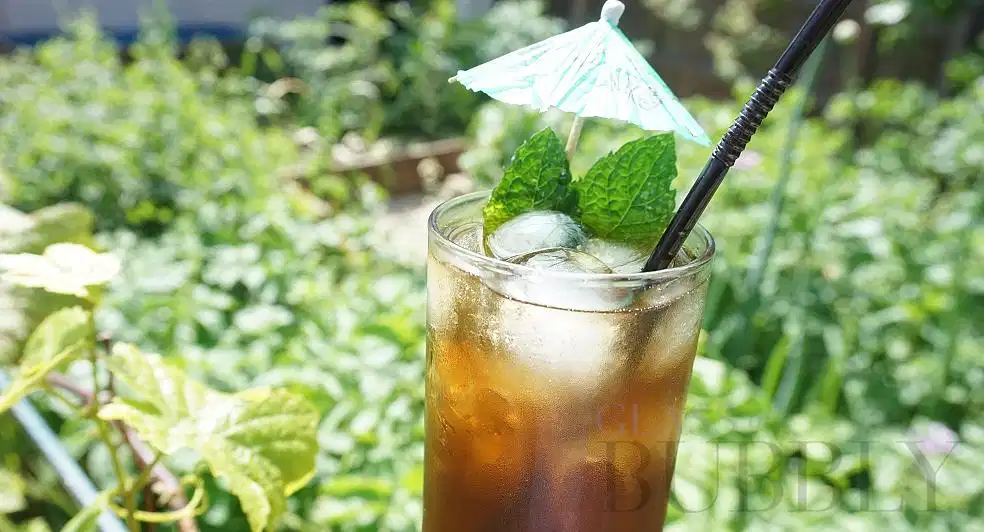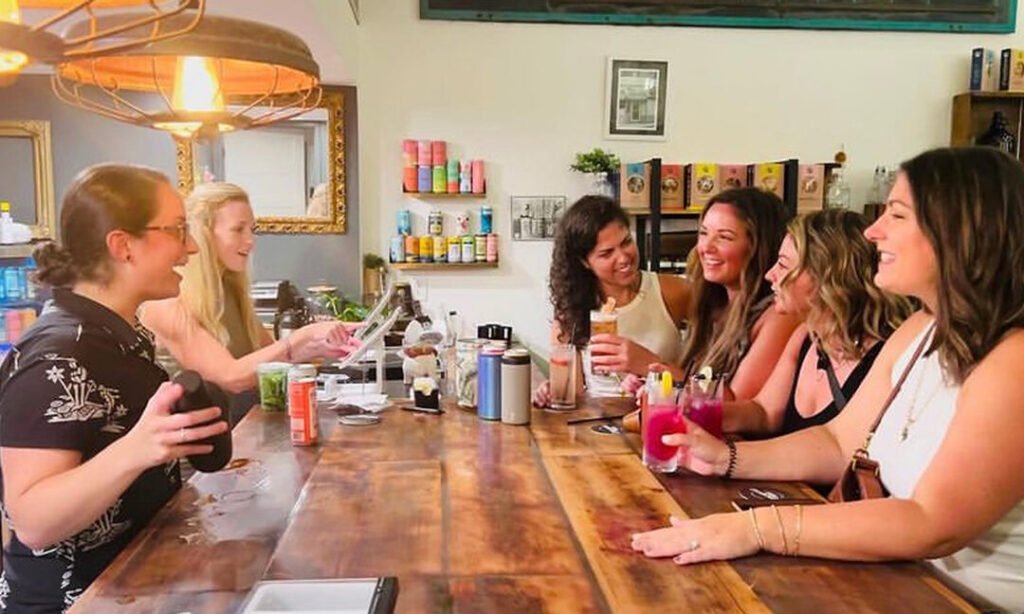In recent years, there has been a significant shift in social gatherings and how we interact in our communities. Alcohol-free events, also known as sober socializing, are gaining popularity across the globe. People are increasingly opting for socializing without the influence of alcohol, creating a new kind of social culture. This movement is not just about avoiding alcohol but also about promoting healthier, more mindful ways to connect with others.
What is Sober Socializing?

Sober socializing refers to attending social events or gatherings without consuming alcoholic beverages. It’s about enjoying the company of others, participating in fun activities, and forming meaningful connections, all while staying sober. This trend has emerged as a response to the growing awareness of the negative effects of alcohol on mental health, physical health, and relationships.
The Rise of Alcohol-Free Social Events
- A Cultural Shift: Over the past decade, alcohol-free events have seen a surge in popularity. From dry weddings to alcohol-free bars, the world is embracing this change. In places like the UK and the US, even music festivals are offering alcohol-free options to cater to a wider audience.
- Social Media Influence: Social media platforms play a big role in spreading the message of sober socializing. With influencers promoting alcohol-free lifestyles, more people are becoming open to the idea of attending or hosting events without booze.
- Health Consciousness: As people become more health-conscious, the demand for alcohol-free events has grown. Many individuals are choosing to live a sober or mindful lifestyle to improve their overall well-being.

Why Are Alcohol-Free Gatherings Gaining Popularity?
- Mental Health Benefits: Alcohol is known to have a negative impact on mental health, contributing to anxiety, depression, and mood swings. By socializing without alcohol, people are more likely to experience better mental clarity, reduced stress, and overall emotional well-being.
- Improved Relationships: Alcohol often leads to miscommunication and poor decision-making in social interactions. Sober socializing allows individuals to connect more authentically, build deeper relationships, and avoid unnecessary conflict.
- Better Physical Health: Drinking alcohol can have serious long-term effects on one’s health, including liver disease, high blood pressure, and digestive problems. Alcohol-free events encourage healthier lifestyles, making it easier for people to avoid these health risks.
- Inclusive Environment: Not everyone enjoys drinking, and alcohol-free events create a more inclusive space for those who don’t drink due to personal choice, health reasons, or cultural beliefs.
Types of Alcohol-Free Gatherings
Sober socializing doesn’t mean that the fun is lacking; it’s about finding new ways to have a good time without alcohol. Here are some common types of alcohol-free gatherings:
- Sober Parties: These are regular parties with no alcohol involved. Instead, they feature mocktails, games, and music to keep the energy high. Popular in cities like Los Angeles and London, these parties provide a space for people to socialize without the pressure of drinking.
- Sober Bars and Cafes: Many new businesses are popping up that serve alcohol-free drinks like mocktails, kombucha, and coffee. These bars focus on creating a vibrant social atmosphere where people can hang out and enjoy the night without alcohol.
- Fitness or Yoga Events: A growing trend is combining socializing with physical wellness activities. For instance, sober yoga classes or fitness events followed by healthy snacks are becoming a great way to meet like-minded people.
- Cultural and Art Gatherings: Museums, art galleries, and cultural events are increasingly offering alcohol-free socializing spaces. These events provide opportunities for people to explore their creative sides and bond over shared interests, without the need for alcohol.

The Role of Alcohol-Free Drinks in Sober Socializing
One of the biggest challenges of sober socializing is the absence of alcohol-related drinks. However, the growing popularity of alcohol-free alternatives is making this transition smoother.
- Mocktails: Non-alcoholic cocktails or mocktails are now more popular than ever. They allow people to enjoy complex, flavorful drinks without the negative effects of alcohol.
- Non-Alcoholic Beers and Wines: With improved taste and quality, non-alcoholic beer and wine are now available at most grocery stores and restaurants. They offer a similar taste to their alcoholic counterparts but without the alcohol content.
- Kombucha and Herbal Drinks: Kombucha and other fermented drinks are excellent alcohol substitutes, offering a refreshing and healthy alternative. They are often served in social settings, making it easier for people to join the conversation while sipping something unique.
The Cultural Significance of Sober Socializing
- Redefining Fun: Sober socializing challenges the traditional notion that drinking alcohol is essential for having fun. It encourages people to find new, creative ways to bond with others through shared experiences and common interests.
- Changing Social Norms: For decades, social gatherings have been centered around alcohol. From weddings to office parties, alcohol was often seen as a must-have. Sober socializing challenges this norm, promoting inclusivity and alternative ways of enjoying life.
- Mindfulness and Self-Awareness: Sober socializing promotes mindfulness and self-awareness. Without alcohol clouding judgment, individuals can become more conscious of their surroundings, their interactions with others, and their own emotions. This can lead to deeper and more meaningful social connections.
- Sustainability and Environmental Impact: The alcohol industry has a significant environmental footprint, from production to packaging. By choosing alcohol-free alternatives, sober socializers contribute to more sustainable and eco-friendly choices.
Challenges and Criticism of Sober Socializing
While sober socializing is on the rise, it’s not without its challenges:
- Social Pressure: People who choose to remain sober may still face social pressure to drink, especially in environments where drinking is deeply ingrained in the culture.
- Perception of Fun: Many people still associate drinking with fun and socializing. Breaking away from this perception can be difficult for those who are used to drinking at social events.
- Limited Options: While alcohol-free options are growing, they are still not as widely available or celebrated in many places. More bars, restaurants, and event venues are needed to cater to the demand for alcohol-free alternatives.

How Can You Embrace Sober Socializing?
If you’re interested in embracing the trend of sober socializing, here are some tips:
- Start Small: Begin by attending smaller gatherings or social events that focus on wellness, like yoga classes or fitness meetups.
- Try Alcohol-Free Drinks: Experiment with mocktails, non-alcoholic beers, and other alternatives to find what you enjoy.
- Host Your Own Sober Event: If you’re tired of the alcohol-centric parties, why not host your own alcohol-free gathering? You can focus on activities like board games, karaoke, or movie nights.
- Find a Supportive Community: There are many online and offline communities that promote sober living and alcohol-free events. Join these groups to find like-minded people who are on a similar journey.
Conclusion: The Future of Sober Socializing
Sober socializing is more than just a trend; it’s a cultural shift that is here to stay. As more people prioritize their health and well-being, the demand for alcohol-free events will continue to rise. By embracing sober socializing, individuals can create meaningful connections, reduce their reliance on alcohol, and enjoy a more mindful and fulfilling social life.
This movement encourages people to rethink what it means to socialize and have fun. Whether it’s through mocktails, yoga, or art gatherings, sober socializing is proving that you don’t need alcohol to have a great time with others. So, the next time you’re planning a social event, consider going alcohol-free – you might just find that the best connections are made when you’re sober.
Gut Health Revolution: Americans’ Growing Focus on Digestive Wellness and Its Benefits






